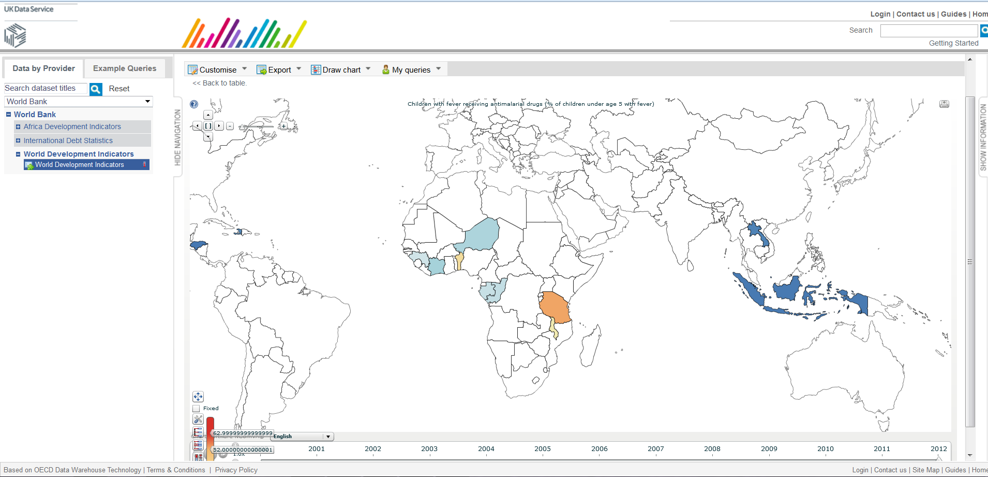Celia Russell, the UK Data Service’s International Data Specialist discusses the development of the Sustainable Development Goals and an increased focus on community defined measures of development and the data that support them.
2015 will be an important year for international development data. It marks the ending of the Millennium Development Goals, the hugely influential set of time-bound and quantified targets for addressing poverty which has provided the global framework for international development over the last 15 years. 2015 sees the start of an even more ambitious initiative, the Sustainable Development Goals (SDGs), a new blueprint for the international development agenda underpinned by measurable indicators.
The nature of the goal-setting processes for the SDGs is very different. Low and middle-income countries are now actively driving the agenda, shaping what development means to them and how it will be pursued. Factors such as economic growth and job creation and improved access to finance and technology are supported. Poverty reduction strategies will be established collaboratively and universally applicable.
Quantified targets and measurable indicators remain at the heart of this political process and the SDGs present an opportunity to increase national and international-level investment in data collection. The UN recently launched the landmark report A World that Counts: Mobilising the Data Revolution for Sustainable Development which describes data as the lifeblood of decision-making:
‘Without data, we cannot know how many people are born and at what age they die; how many men, women and children still live in poverty; how many children need educating; how many doctors to train or schools to build; how public money is being spent and to what effect; whether greenhouse gas emissions are increasing or the fish stocks in the ocean are dangerously low.’
The data revolution remains unequally distributed between countries and people. Many people and groups still go uncounted. Issues which rely on localised collection of data, such as the incidence and prevalence of malaria, remain under-counted. The map below highlights the scarcity of reported data for the ‘Proportion of children with fever who are treated with appropriate anti-malarial drugs, one of the key indicators for the Millennium Development Goals
Data from the World Bank (2014): World Development Indicators (Data downloaded: 17 December 2014). DOI: https://dx.doi.org/10.5257/wb/wdi/2014-12-17
A World that Counts is essentially a call to arms for the data revolution:
‘We propose that the UN establish a process whereby key stakeholders create a “Global Consensus on Data”, to adopt principles concerning legal, technical, privacy, geo-spatial and statistical standards which, among other things, will facilitate openness and information exchange and promote and protect human rights’
In parallel with these high-level changes, new thinking and technologies are encouraging the production of everyday indicators to reflect everyday life. Communities can now choose their own measures, produce their own data and tell their own stories direct to the public commons. For example, most indicators of peace and reconstruction are top-down, designed and identified by international organisations and governments, but the Everyday Peace Indicators project at George Mason University in the US and the University of Manchester in the UK is looking at what happens when communities in war-affected areas produce their own locally-grown indicators of security. People measure their own safety in ways governments may not expect, such as whether they hear abandoned dogs barking in the night, or judge it worthwhile to get their windows or store fronts repaired, or feel too scared to go outside to the toilet.
The data supporting the Sustainable Development Goals will form an important part of the UK Data Service collection. My colleague Susan Noble from the UK Data Service international macro data team produced a terrific set of teaching materials on the Millennium Development Goals at their half way point in 2007. These have now been brushed up, updated and made available through the ESRC Restore service: https://www.restore.ac.uk/UN_Millennium_Development_Goal/. We hope to produce similar sets of materials to help students explore, research and analyse the data created by the next generation of sustainable development goals.
You can follow the progress of the SDGs and discussions on global development throughout 2015 with the ODI #GlobalChallenges debate series.


